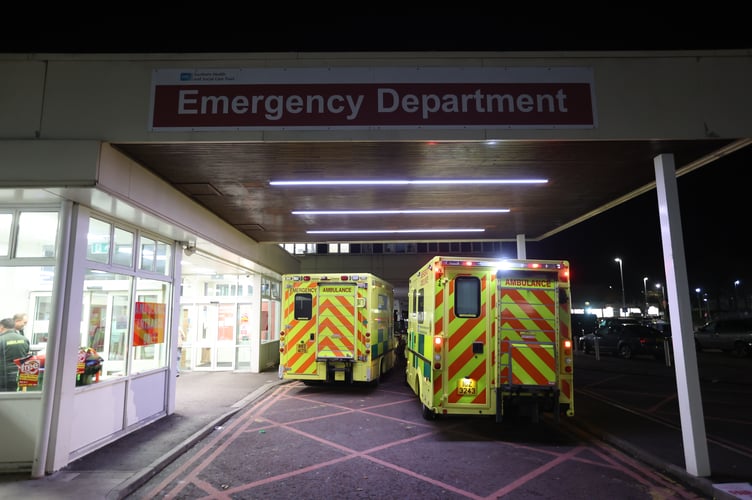More than £100 million is needed to restore crumbling buildings to full working order at the Royal Devon University Healthcare Trust, new figures show.
Across England, a growing number of buildings are in a poor state, with the repair bill climbing to £11.6 billion last year.
NHS Providers, the body which represents NHS hospital, mental health, community and ambulance services, said the rate at which the bill is rising is "alarming", and urged the Government to provide much-needed investment in broken buildings.
The latest NHS Digital figures show £164 million is needed to restore buildings at Royal Devon University Healthcare NHS Foundation Trust to certain standards as of March.
This work should have already taken place and covers everything from leaky gutters and faulty lifts to critical electrical and structural issues in hospital buildings. It does not include planned maintenance due to be undertaken.
Of this, just £14.1 million is required to fix high-risk issues, which NHS reports say must be addressed with urgent priority to prevent catastrophic failure, major disruption to clinical services, or safety deficiencies liable to cause serious injury.
The most expensive site was Royal Devon and Exeter Hospital, with £100 million needed to complete all the necessary repairs.
Nationally, the maintenance backlog rose by more 13% last year, including £2.4 billion earmarked to eradicate the high-risk backlog.
Chief executive of NHS Providers Sir Julian Hartley said: "The cost of trying to patch up creaking buildings and out-of-date facilities is rocketing. Far too many NHS buildings and equipment are in a very bad way, and the situation is just getting worse.
"The safety of patients and staff is at stake. To provide first-class care, the NHS needs safe, efficient and reliable buildings, facilities and equipment."
In October, the Department for Health and Social Care confirmed 42 sites have reinforced autoclaved aerated concrete (Raac) and must be repaired.
This included North Devon District Hospital at the Royal Devon University Healthcare Trust.
Sir Julian said the presence of the collapse-risk concrete "is a symptom of a far bigger and long-running problem".
"Many trusts – mental health, community, hospital and ambulance services – need major investment to refurbish ageing buildings and tackle risks to the safety of patients and staff," he added.
"We need the Government to shift gear and inject a significant shot in the arm of capital investment in the NHS."
A DHSC spokesperson said: "We have invested significant sums to upgrade and modernise NHS buildings so staff have the facilities needed to provide world-class care for patients, including £4.2 billion this financial year.
"Trusts are responsible for prioritising this funding to maintain and refurbish their premises, including the renewal and replacement of equipment.
"This is on top of the £3.7 billion made available for the first four years of the New Hospital Programme and a further £1.7 billion for over 70 hospital upgrades across England alongside a range of nationally-funded infrastructure improvements in mental health, urgent and emergency care and diagnostic capacity."




